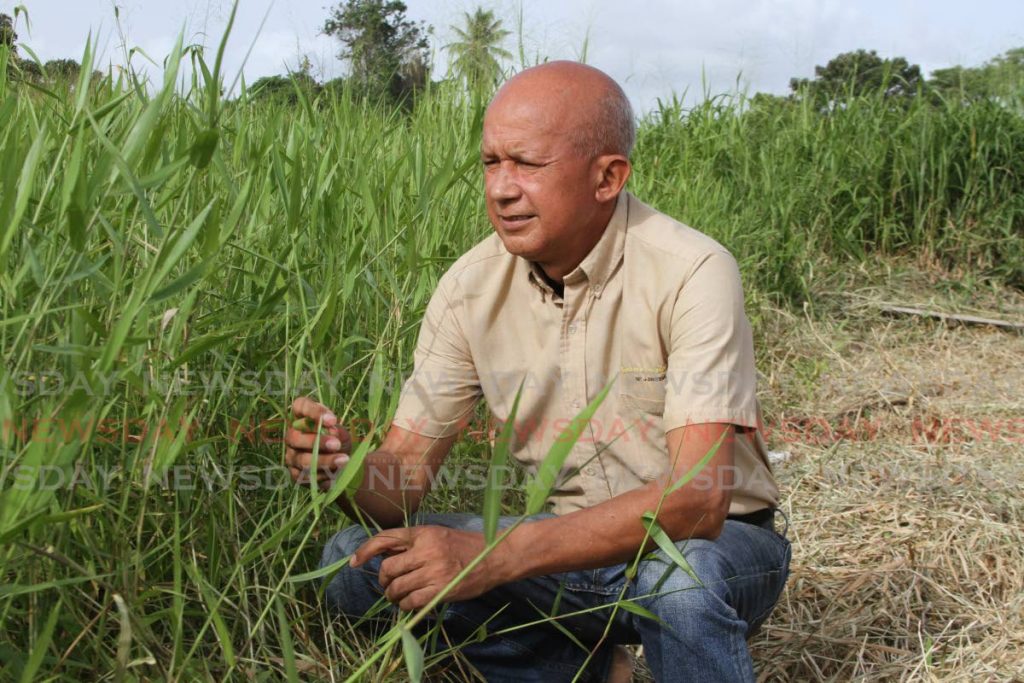Venezuelan expert to Trinidad and Tobago: 'Take advantage of land to recover post-pandemic'

Agriculture is an essential activity for all economies as a provider of food and employment, and it will be fundamental for post-pandemic recovery.
Venezuelan Jacobo Arturo Castillo, a higher university technician in agriculture with 35 years of experience, believes TT has a great opportunity to deal with the economic challenges left by covid19 by making the most of its land.
Castillo took refuge in TT since 2018, and has been working in agriculture here. He believes TT has type A soil, which has all the ingredients to generate good harvests.
In a recent interview with Business Day, Castillo said he thinks given the necessary investment and importance, agriculture can turn around economies and industries negatively affected by the pandemic.
“The pandemic has revealed the weakness of food systems at the global level. Therefore, it is necessary to integrate immediate measures that promote health and safety in work areas, particularly in the agricultural sector for their conservation and recovery,” he said.
Castillo is from the city of Araure, an important agricultural area. He is a specialist in vegetable production and worked in several agricultural companies before deciding to come with his family to TT.
Castillo told Business Day, “(It's) precisely the lack of investment and confidence in agricultural production (that) destroyed the economy of Venezuela. Almost everything the people consume is imported. That was a great example before the pandemic that land work is essential to boost economies...”

Castillo said agriculture can serve as an engine to boost TT's economy. But to do that, there needs to be an increase in the availability of labour and an increase in the number of farms – and farmers.
And Venezuelans in TT can help.
“Currently in TT there are thousands of Venezuelans who have worked in agriculture, because many years ago our country produced thousands of hectares, and many of those who are here know what it is to work in agriculture. I am sure the joint workforce between Venezuelans and Trinidadians will be of great value at this time.”
And not only workers, but also specialists like Castillo himself. Many Venezuelans who are in TT come from the plains and the mountains, places where university graduates in agriculture have established careers.
"If the government and the landowners get together and make economic planning based on agriculture, I am sure that all the specialists will contribute to move this country forward."
Castillo has been working for farmers as a labourer since he has been in TT and shares ways they can improve their cultivation.
Likewise, he highlights the benefits agriculture brings to preserving biodiversity and ecosystems to the extent that it is practised in a sustainable way and in harmony with the environment.
"A sustainable agriculture promotes better management of natural resources and conservation of the ecosystem."
The FAO (UN Food and Agriculture Organization) says, "sustainable agriculture must ensure world food security while promoting healthy ecosystems and supporting sustainable management of land and natural resources."
Castillo said that under this concept, work has to be focused in several areas to achieve an economic boost after the pandemic, including the social, environmental, economic and political.
And there is groundwork that needs to be done: soil sampling, an agricultural census, pricing of agricultural labour, creation of co-operatives or companies, training and knowledge transfer, formulating a response to climate change, crop diversification, implementing irrigation systems, and more.

With the input of both the public and private sectors, he says, "It is possible to start with demonstration (agricultural) plots as a trial and to be able to know the yield, resistance and time to harvest. Effort is needed in all aspects of our society."
Kiran Mathur Mohammed, economist, Newsday columnist and and co-founder of a health tech company, said there is a considerable labour shortage in agriculture that local workers have been unable to fill and the immigrants here could solve.
"But it isn't just unskilled labour; there are many Venezuelans with strong technical skills in agriculture, skills that are sorely missing," he said. "Venezuelan workers and technical expertise can step in to help rapidly boost productivity in the sector without displacing local labour."
Mathur Mohammed said this was just one of many examples of ways Venezuelans can help improve agriculture in TT.

Comments
"Venezuelan expert to Trinidad and Tobago: ‘Take advantage of land to recover post-pandemic’"